2022 Federal Budget Analysis and Recap
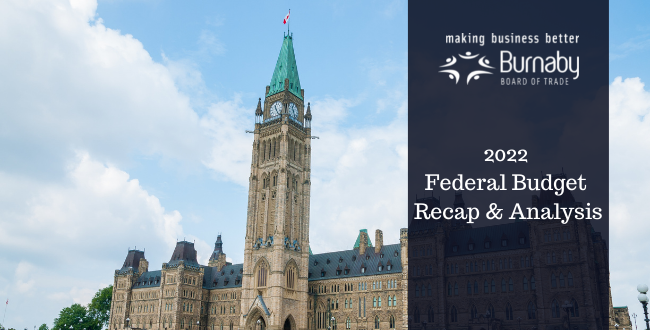
The Burnaby Board of Trade will continue to work with our federal representatives directly, and through the Canadian Chamber of Commerce, to help shape how any new government programs are implemented and where further action can and should be taken to support our members and our community.
Budget Balance and Deficits
This budget expects a $113 billion deficit for the fiscal year just ending, and another nearly $53 billion deficit projected for the coming fiscal year, continuing the staggering budgetary shortfalls of recent years. However, as the economy improves it is forecasting much lower deficits by the end of the 5-year projection.
The Burnaby Board of Trade is pleased the government and the Minister re-articulated the concept of a ‘fiscal anchor,’ identifying a declining debt-to-GDP ratio (how much debt government carries compared to the size of the overall economy) as its measure for containing spending. However, in an era of increasing interest costs and economic uncertainty, we are concerned with the potential impact of future debt-servicing costs.
Business and Investment
The budget contains several note-worthy announcements aimed at the business community, innovation and productivity, including:
- Allow the Small Business Tax Rate to phase out more gradually, allowing businesses to still access part of the lower rate until their taxable capital reaches $50 million, rather than forcing them to face the full corporate tax rate when their taxable capital reaches $15 million as it does now
- Plans to establish a new investment tax credit of up to 30% that is focused on net-zero technologies, battery storage solutions, and clean hydrogen, as well a refundable investment tax credit for businesses that incur carbon capture, utilization, and storage expenses.
- Our take: Burnaby is well-positioned in each of these innovative sectors, with local Burnaby companies acting as leaders in green tech, battery, hydrogen and carbon-capture-utilization-and-storage. These announcements should prove useful in supporting our members in these sectors to grow and implement their technologies more broadly.
- Establish the Canada Growth Fund, a new $15 billion government investment fund that will accelerate the investment of private capital into decarbonization and clean technology projects, sectors where Burnaby is well-positioned for growth.
- Our take: The Burnaby Board of Trade supports government co-investment vehicles as a key way to drive innovation and economic growth, and to supercharge private-sector investment. We’ve advocated for these types of efforts for over 10 years at both the federal and provincial level.
- Our take: The Burnaby Board of Trade supports government co-investment vehicles as a key way to drive innovation and economic growth, and to supercharge private-sector investment. We’ve advocated for these types of efforts for over 10 years at both the federal and provincial level.
- Create an operationally independent Canada Innovation and Investment Agency, and proposes $1 billion over five years, starting in 2022-23, that will support and finance innovation, research, and development in the private sector
- $603.2 million over five years to support more resilient and efficient supply chains, including $450 million for infrastructure improvements and $136.3 million to use data to maximize our existing supply chains better
- Our take: The Burnaby Board of Trade has called for the federal government to fund fixes to supply chain challenges from transportation backlogs to high shipping costs. We also have advocated directly for federal funding that leverages data and technology to make better use of the supply chain resources we have.
Housing Affordability
- The budget pledges to double the number of housing starts and homes being built in Canada each year over the next 10 years as a broad objective
- Our take: Housing is a priority for our members and their workers, and this is a positive goal to articulate. However, it will be dependent on collaboration between federal, provincial, and municipal governments, along with private sector and non-profit builders, which governments of all stripes have struggled to deliver on in the past.
- Our take: Housing is a priority for our members and their workers, and this is a positive goal to articulate. However, it will be dependent on collaboration between federal, provincial, and municipal governments, along with private sector and non-profit builders, which governments of all stripes have struggled to deliver on in the past.
- Provide $4 billion over five years to launch a new Housing Accelerator Fund, which will provide supports to local governments to support housing development and processes at the local level.
- $1.5 billion to extend the Rapid Housing Initiative to create 6,000 new affordable housing units through modular units and converting existing buildings such as single-room-occupancy hotels
- Create a new Tax-Free First Home Savings Account that would give prospective first-time home buyers the ability to save up to $40,000. Contributions would be tax-deductible, like an RRSP, and growth and withdraws would be tax-free, like a TFSA.
- Double the First-Time Home Buyers’ Tax Credit providing up to $1,500 in direct support to home buyers, applying to homes purchased on or after January 1, 2022.
- Prohibit foreign commercial enterprises and people who are not Canadian citizens or permanent residents from acquiring non-recreational, residential property in Canada for a period of two years.
- Introduce new rules so that any person who sells a property they have held for less than 12 months would be subject to full taxation on their profits as business income
Climate and Environmental Sustainability
- $43.5 million to set up the Canada Water Agency that will work to keep Canada’s water safe, clean, and well-managed
- Our take: This is a specific win for the Burnaby Board of Trade, which has asked for years to a national body to manage and steward our water resources
- Put in place a sales mandate to ensure at least 20% of new light-duty vehicle sales will be zero-emission vehicles (ZEVs) by 2026, at least 60 per cent by 2030 and 100 per cent by 2035. In addition, there will be a mandate that 35% total medium-and-heavy-duty vehicle sales be ZEVs by 2030.
- $1.7 billion over five years to extend the Incentives for Zero-Emission Vehicles program until March 2025 to help more Canadians get behind the wheel of zero-emission vehicles.
- $547.5 million over four years to launch a new purchase incentive program for medium- and heavy-duty ZEVs to help businesses upgrade their fleets.
- Invest $500 million in large-scale urban and commercial ZEV charging and refueling infrastructure
- Develop new tools, guidelines, and targets to support the adoption of green procurement across the federal government
- Our take: The Burnaby Board of Trade applauds this move to better leverage the federal procurement process to support and encourage sustainability, environmental companies, and green technologies
Other Announcements
- Providing dental care for individuals with household incomes of less than $90,000 annually with a spend of $5.3 billion over 5 years and $1.7 annually after that. The program would start with children under 12 in 2022, then expand to children under 18, seniors and those with a disability in 2023, and then full implementation in 2025.
- A one-time $500 payment to Canadians facing “housing affordability challenges” at a cost of $475 million with details to follow on implementation
For more information on the Federal Budget 2022:




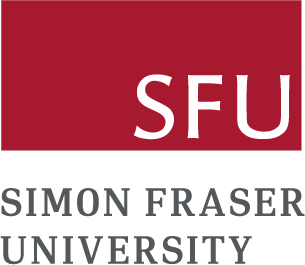
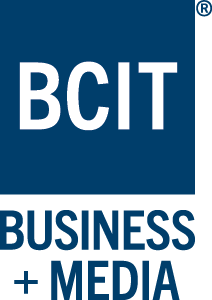







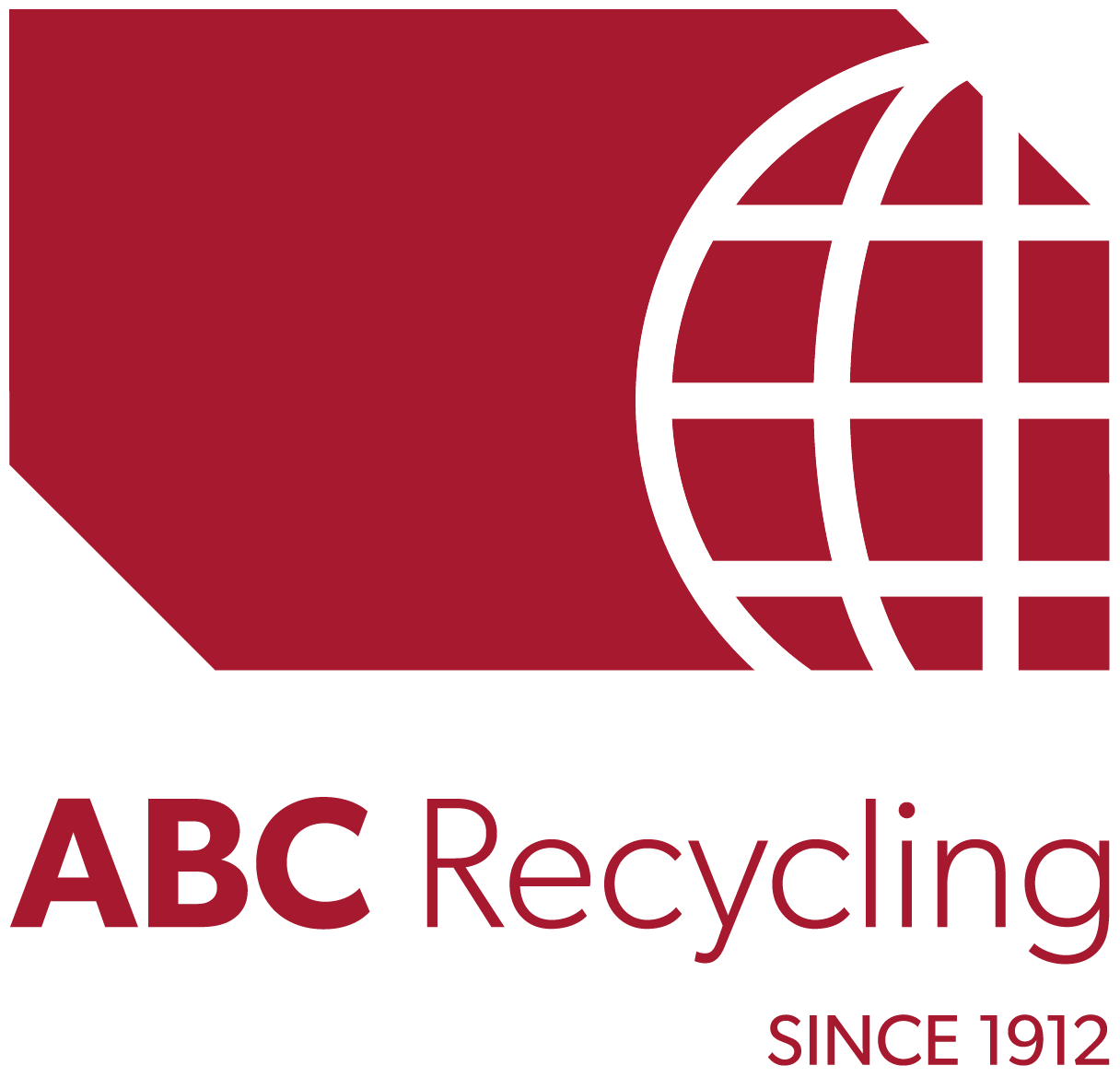
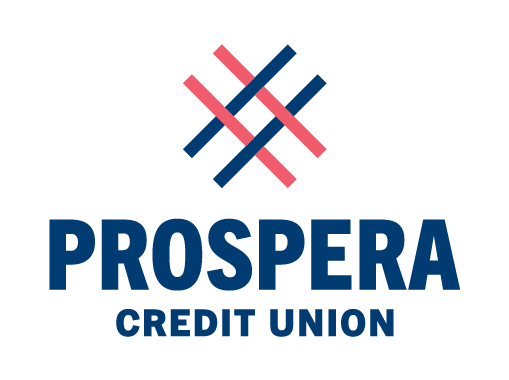
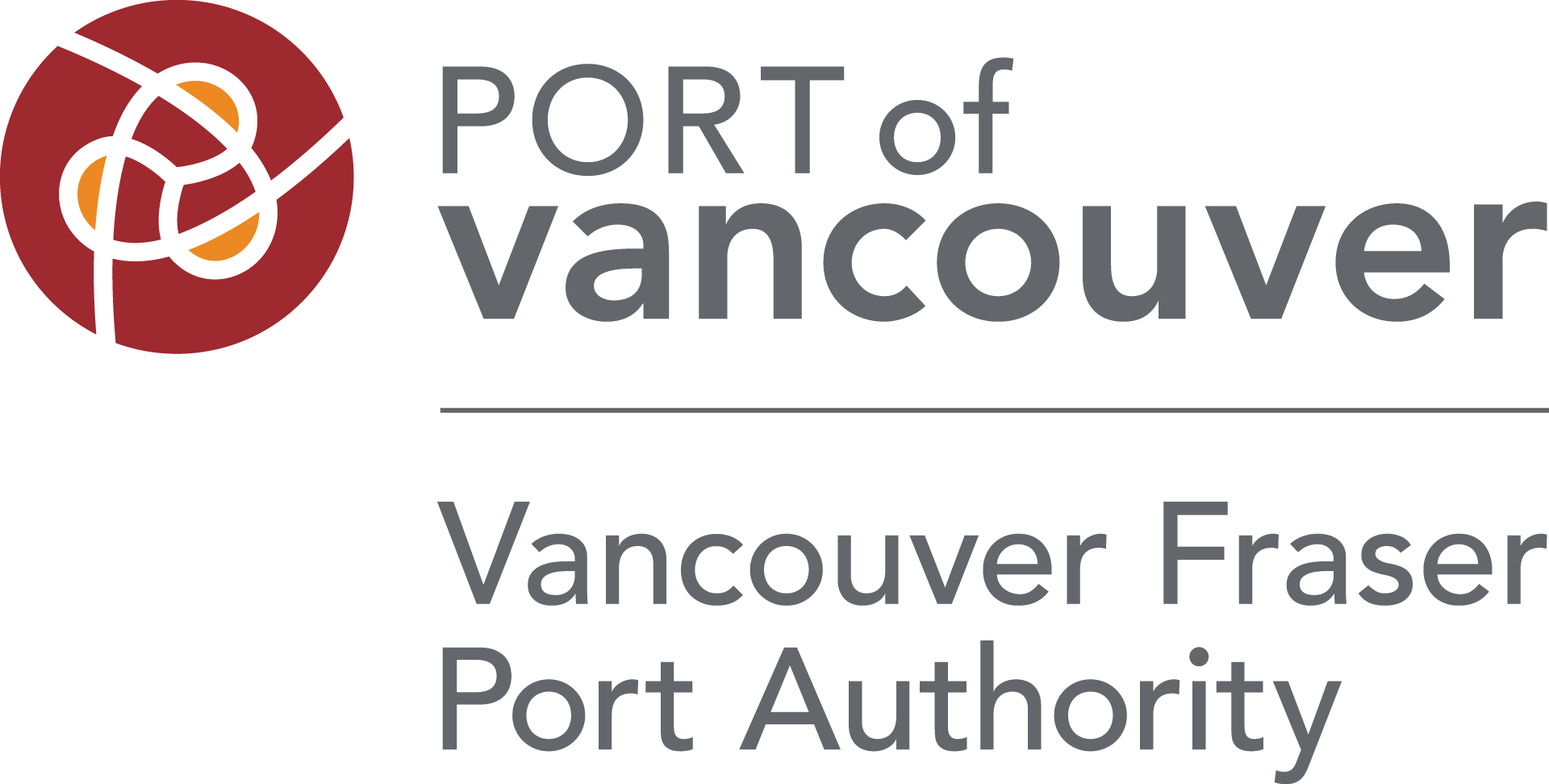
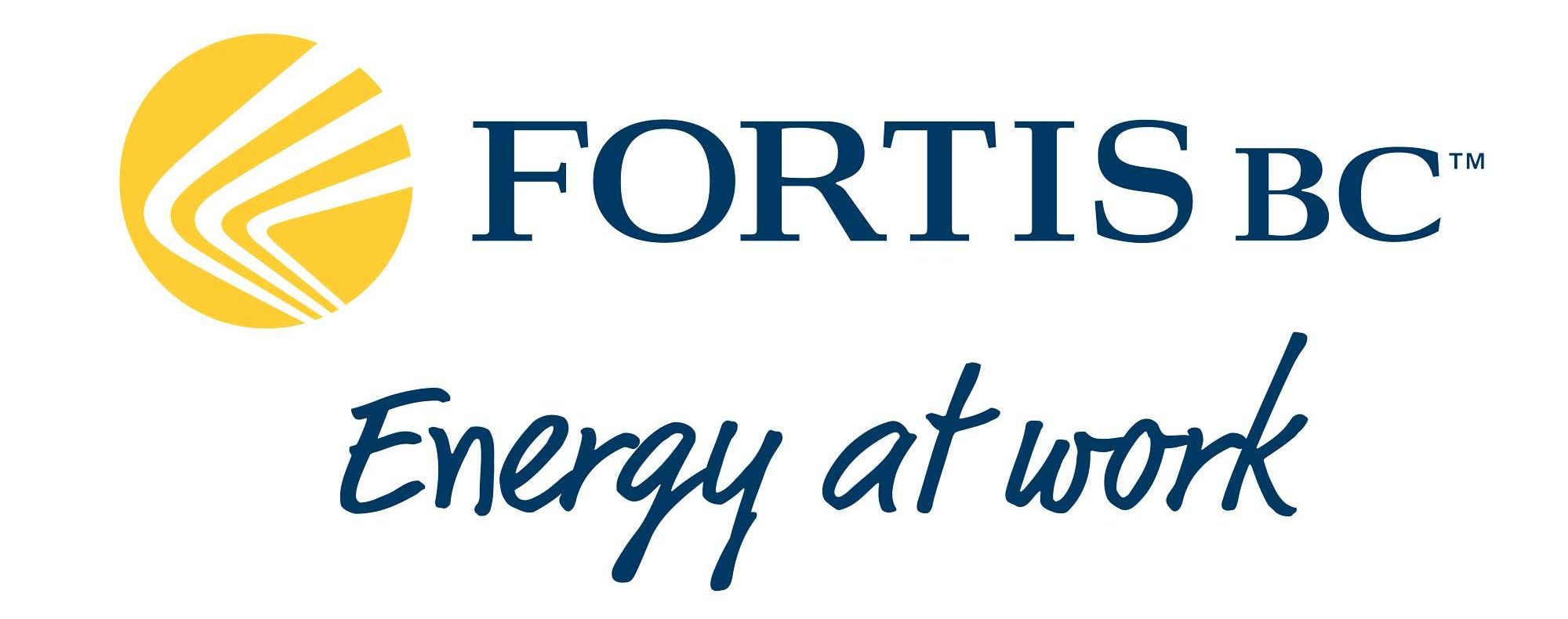
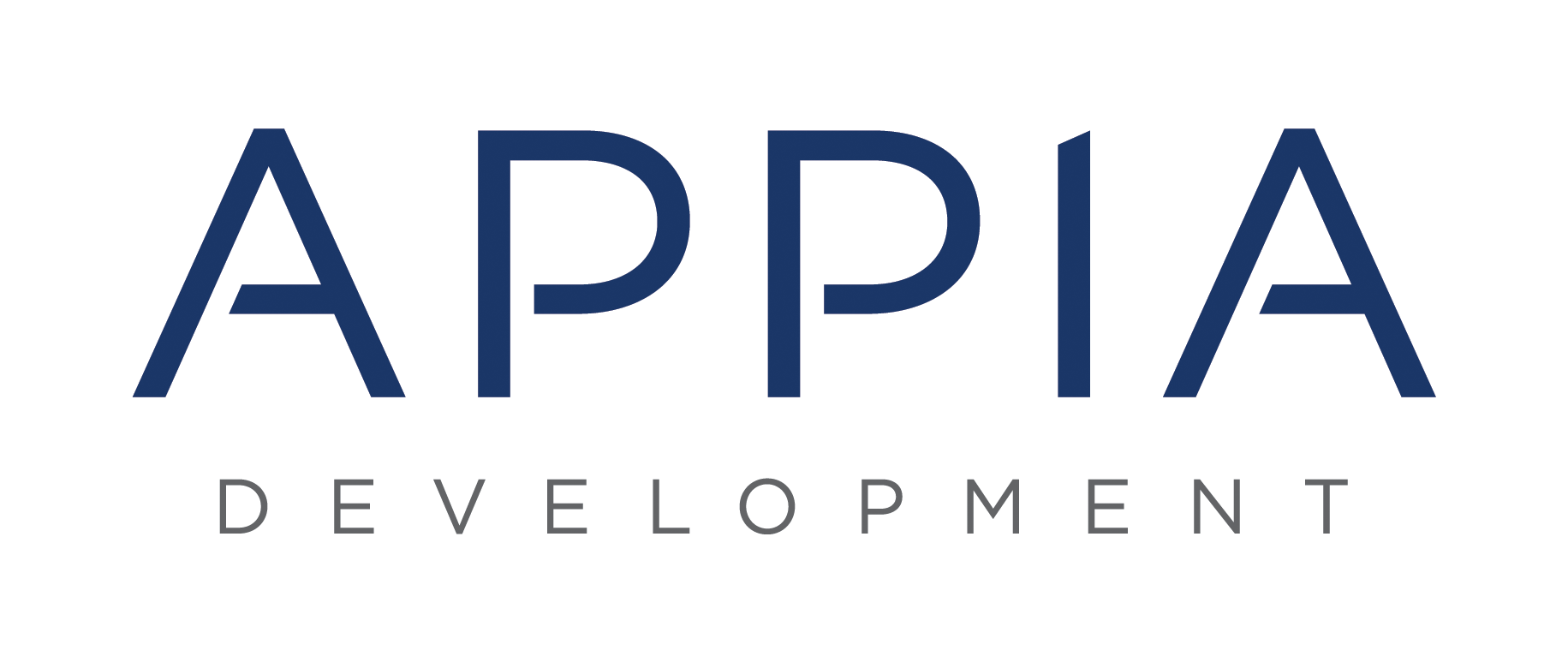
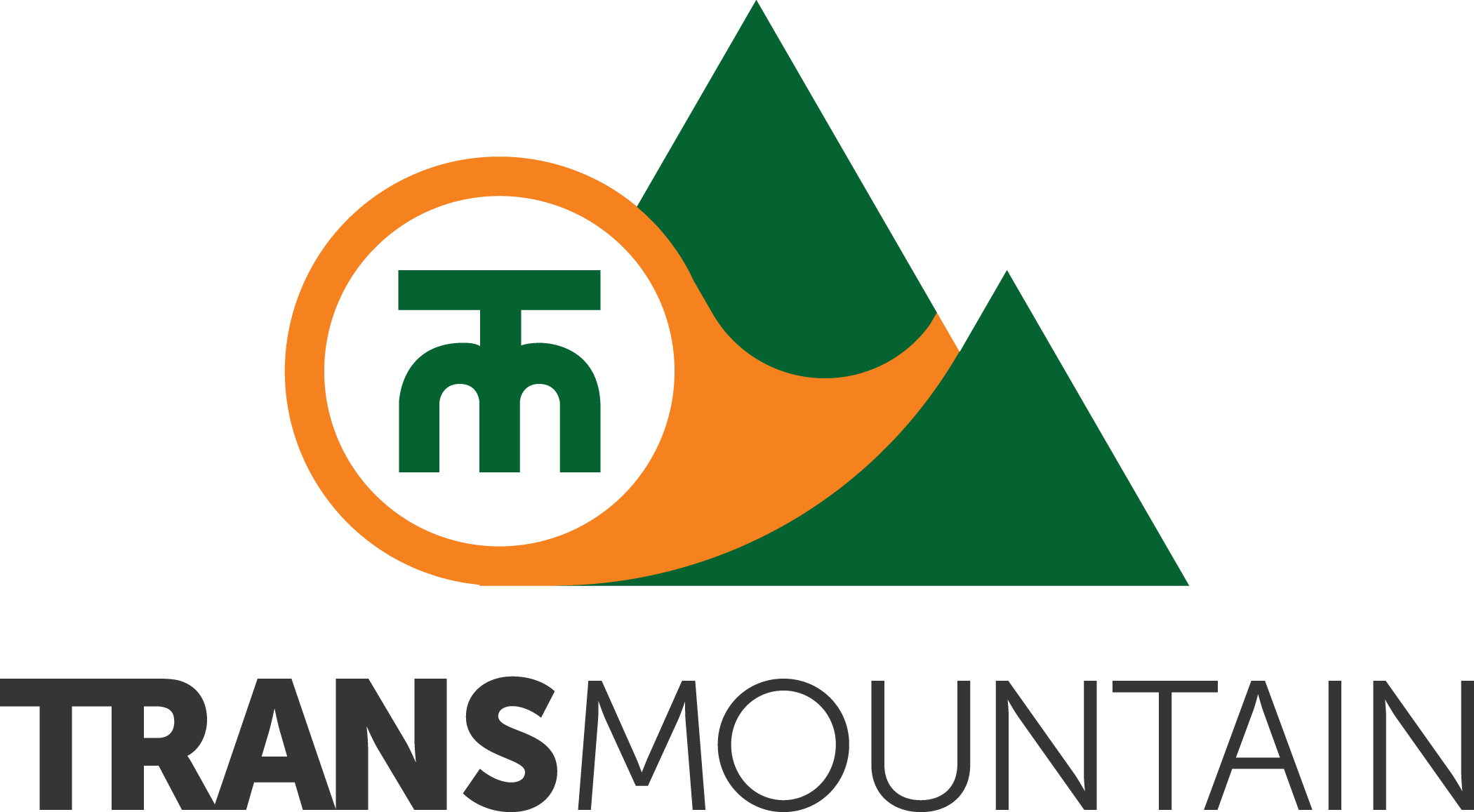

connect with us